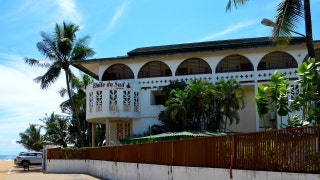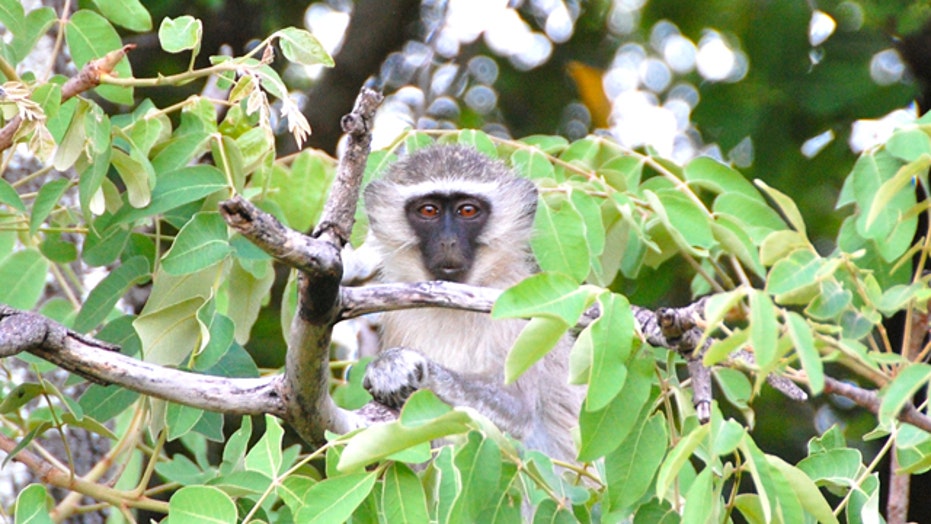Across South Africa there are literally thousands of safari’s and game reserves that range in size from the massive Kruger National Park which is bigger than the country of Ireland, to locations that cover just a few acres.
At most you’ll get the chance to see the “big five”(rhino, lion, elephant, water buffalo, leopard), but generally speaking there are two types of reserves/parks to see South Africa’s game: almost wild --where animals are protected, monitored, and sometimes fed -- and pure wild, where there is no human intervention.
Known as “a world in one country”, South Africa boasts a huge collection of wildlife regions, reserves and animals. Every possible landscape and topography can be found from forests, to deserts, marshlands, mountains and coastlines. The wild and pure wild parks are both public and private, and host 299 mammal species, of which 13 are endangered, and 15 are considered vulnerable. Wildlife also includes all sorts of birds, amphibians, reptiles, flora, fauna and insects, as the country and its parks host just about every possible wildlife encounter imaginable.
With all this in mind, you just can’t go wrong with a safari adventure, no matter which one you choose.
First we’ll start with the almost wild version at the 18,000 acre Aquila Private Game Reserve about a two-hour drive from Cape Town. While some call this type of safari a “glorified zoo”, I would have to say that it’s still a great beginning for people who might be a little uneasy about wild animals, or just want to get an introduction to a wild safari; it’s also great for kids.
Aquila does have the big five and the setting amongst dramatic mountains in the Southern Karoo Highlands is spectacular. The lodges sit just outside electrified fences that keep the animals close, but not in your bungalow. In fact, my first morning I awoke to elephants and wildebeest just outside the window and across a nearby marshland. The site was truly stunning and just a few moments later we were inside the Land Rover and headed inside the fence to see these animals up close.
The positive of Aquila is that you see everything. All the animals are together, except the lions which are kept in a separate open area because the range just isn’t big enough to sustain them with all of the other animals. From elephants, to springbok to rhinos, we had the chance to see amazing wildlife. Even the water buffalo that eventually blocked our path. These animals hunt the majority of their own food, but get supplements from humans since it would be impossible for all them all to coexist even on a reserve of this size and many not be indigenous to the region.
Don’t get me wrong, the reserve seems quite large to you and I, but still not massive enough for all wildlife involved.
That’s where some of the criticism might come if you are someone ready for the bush, or have been on a wild game drive before. Again, this is a great place to see the animals up close and get an introduction, or reintroduced to this amazing wildlife, but also at times it can seem as if all of us have been brought inside unnaturally together. That doesn’t mean Aquila is a bad trip, just a more relaxed and easy version of an African safari. Basically one big fence and all of us end up inside looking at each other. It makes for some great photographs and some memorable moments that you wont find stateside.
Aquila also boasts an impressive animal rescue and rehabilitation program, which absolutely makes sense in the way that the reserve is set up. These wild animals are just that, but some wouldn’t be able to survive in a truly open wild situation. On a trip here you’ll see lions, elephants, hippos, zebras, ostriches and the experience of almost wild should still welcome a considerable number of visitors. The guides are knowledgeable and the staff more than welcoming.
As for the accommodations, they were nice, clean and rustic...but still 4 around star quality. The food wasn’t too exotic, but still had a bit of African flair. Like the wild animals, just a few short yards away, the stay here is great for a beginner, kids, elderly, or someone just looking to get away from the Cape and see more of Africa’s impressive fare. You really aren’t going to get the true wild experience in the south of the country anyway: that’s comes hours north.
That brings me to our next stop...the pure wild experience.
A week after Aquila, we headed to the Welgevonden Private Game Reserve in the Limpopo Province of South Africa, which is about a two and a half hour drive north of Johannesberg in the northern part of the country. In fact, we originally planned on a trip to one of the many lodges in the Kruger National Park, when a South African friend recommended this reserve and specifically the Makweti Lodge. We decided to take the chance, and boy did we find a hidden gem.
The Welgevonden park is stunning in every way imaginable, and around every turn it seems there is a new animal or a totally different topography. Set over 145 square miles this reserve, like Aquila, is malaria free. One of the largest populations of white rhino and more than 50 mammals and 250 bird species call this area home, including the big five. Makweti is one of a few private lodges that welcome visitors year around, and the lodge is inside the park so animals of all types can just walk right on by.
Like most safari lodges, there are two game drives at Makweti every day, one at dusk and one at dawn. Each time visitors pile into a very comfortable open-air Range Rover and head out into the bush hoping to find that next great sight. What separates these pure wild safari’s is that you never know what you’ll find, or see. Some days things can be a bit quiet, but even on those days warthogs and zebras dot the landscape. Other days you’ll find the big five out and about without much looking at all. Makweti also only has a few bungalows, so there won't be a ton of people, which makes the trip here that much more intimate.
If you absolutely must see everything, you’ll need several days here just to be sure. Like most pure wild experiences, nature makes the call and even with a great tracker like our guide, the animals will go and do what they want...we are just peeking into their livelihood. We are just here seeing incredible bio diversity and game that hasn’t been hunted, so there is very minimal human impact.
One of the best trackers around Welgevonden was our guide from Makwetu Jaques, who for our three days tracked animals as if he was a lion on a hunt. He and his wife run the lodge in three week intervals before taking 9 days away, only to return and lend their expertise to a new set of travelers from around the globe. Both are native to this country and their knowledge is unmatched. We found this understanding most helpful and they answered our many questions.
Basically Makweti is set right in the middle of the park which is a self contained ecosystem. That means no animals are fed. Our lodge was great for the bush, with no phones, televisions or Internet. Periodically you can get international cell service, but we really found no need for any technology other than our cameras. The food had an African take, but it wasn’t too exotic and the quality was absolutely 5 star. Everything was clean, yet rustic and staff was very, very good at all levels. We didn't have air conditioning in our room (I am not sure if others did) and some of the 6 bungalows do have small private pools. Having said that, the rooms were very luxurious, especially for the bush.
As you roll out from Makweti and into your drive you’ll find deep rocky ravines, and stunning open grasslands. It really gives the tourist multiple perspectives and looks that represent much of Africa in a microcosm. To see two-story giraffes trot through a field only to stop and feed from the tops of trees and then not far away a white rhino chasing into the brush after his mate, really presents nature like nothing else.
From the large and more well known wild animals to the very smallest insects and lizards, what you see in the pure wild park experience is that much more exciting because the confinements are virtually non existent. We also got the chance to experience the true king of the jungle. A lion walking his territory, as even the birds at the tops of trees change their songs to warning chirps. A roar followed and everyone watched, us included, as this call of nature played out.
Experiencing South Africa and its endless choices of game reserves and parks is a must --no matter where you choose to go. Many of these reserves are not just welcoming visitors, but are essential to the survival of these species. Welgevonden and Aquila are just two that are committed to ongoing development, conservation and research, and of course human education and enjoyment.









































